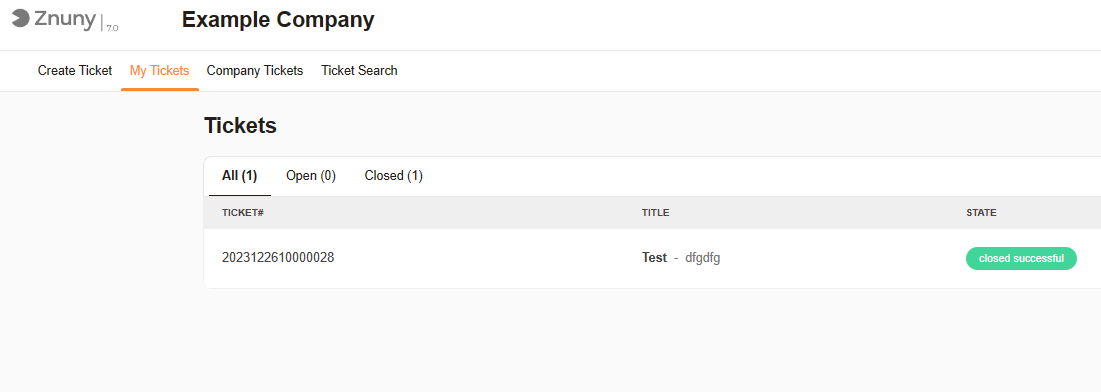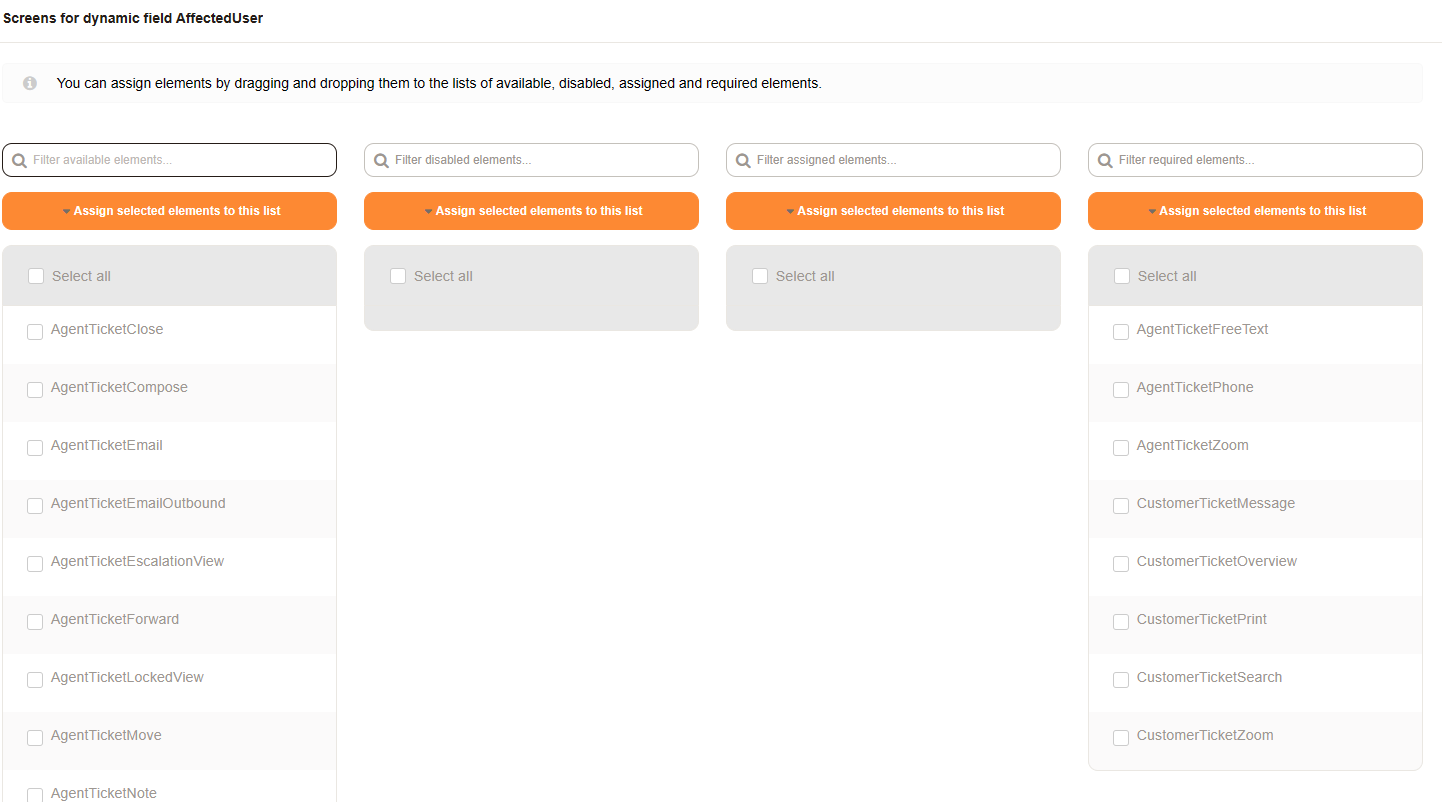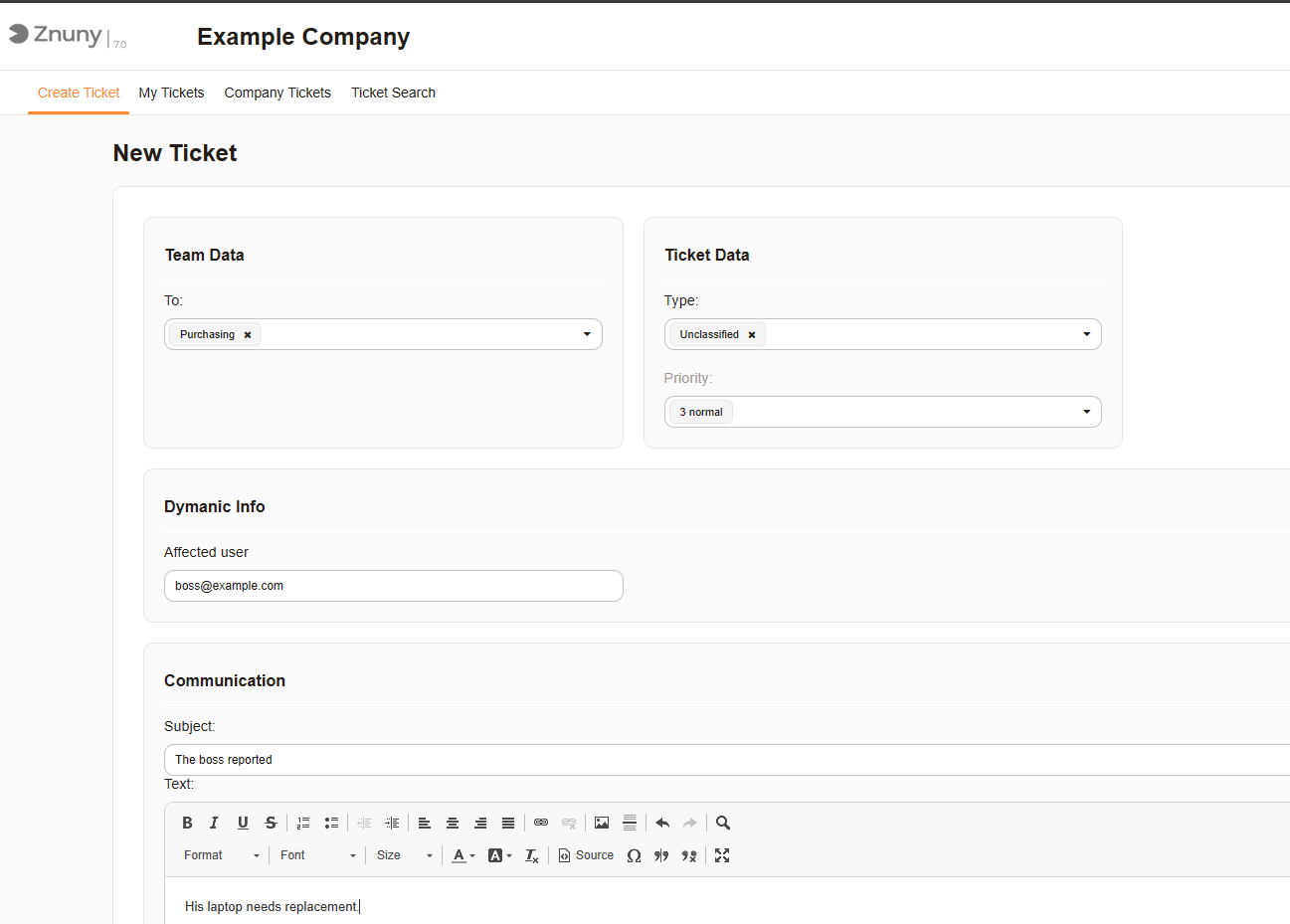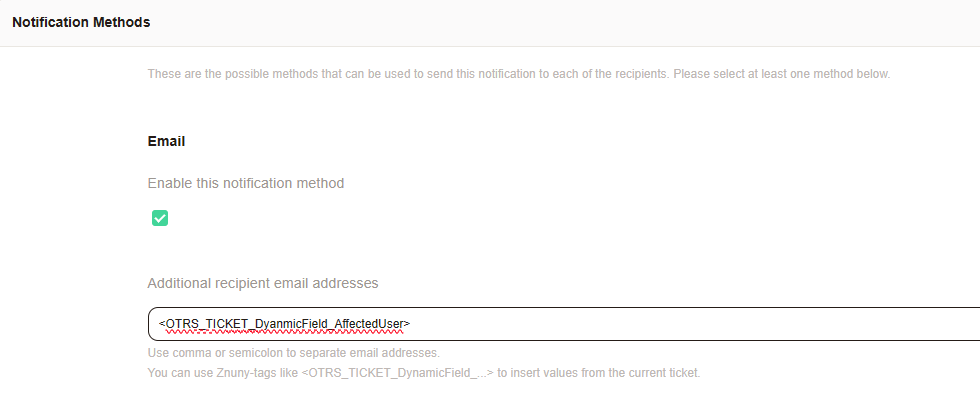Enhancing Service Efficiency: The Impact of Delegated Tickets
In IT and HR service management, delegated tickets are pivotal for optimizing processes and fostering collaboration. Here's a concise focus on their significance:
The delegate (reporter) functions as a proxy for the customer user (affected user) in the ticketing system. This role involves representing the user's needs, reporting issues, initiating requests, or starting processes within the system. Despite being the person creating or managing the ticket, the delegate isn't the ultimate user experiencing the issue but serves as their representative.
This proxy role is crucial in cases where the affected user might need more direct access to the system or needs more time or expertise to handle the ticket personally. It allows for seamless reporting and tracking of issues by someone authorized to act on behalf of the user.
Maintaining the delegate as the primary customer of the ticket ensures that the representative relationship remains intact within the system. It's essential to maintain accountability, ensure proper communication channels, and preserve the delegate's role in addressing and resolving the reported concerns.
In this context, ticket notifications become a critical tool in streamlining operations, ensuring that both the delegate and the affected user remain informed and engaged throughout the ticket resolution process.
Delegated Ticket Goals and Benefits
-
Streamlined Reporting Process: Delegated users, such as secretaries or interns, assist in reporting issues, initiating processes, or requesting services on behalf of others. However, maintaining the delegate as the ticket's affected user is sometimes essential for effective handling, ensuring the affected user also remains informed.
-
Time Optimization: Delegated ticket handling allows users to concentrate on tasks while designated personnel efficiently manage ticket creation, optimizing time for both parties.
-
Inclusive Accessibility: Delegation assists users without system access or time to ensure their issues are tracked and handled promptly, bridging accessibility gaps.
-
Tailord Notifications: Ensuring notifications and updates about the ticket's progress are directed to the delegate and the requester, maintaining relevant communication channels.
Realization of Delegation Role in Znuny
- The user acting as a delegate (reporter) needs to have an active account with the system.

Customer Portal - The administrator will create an additional dynamic field to accept the affected user's email address. (With a special add-on from Znuny GmbH, this field can directly connect to the customer user database; this keeps errors to a minimum.)

Creating a Field 
Screen Assignment - This field should be filled by the delegate or the service agent when creating the ticket.

New Customer Ticket
The software now has enough information to add this dynamic field information to the notification system. This allows the notification system to not only send notifications to the customer of the ticket but, in special cases, also to the service requester of a ticket that has been delegated.
The administrator can now create special ticket notifications, adding any filter criteria and events to trigger the notification to the customer user (delegate) and requester (affected user). This will be counted as an external article to the ticket, increasing visibility for the agent and customer user (reporter) in the customer portal.

In essence, leveraging delegated ticket creation ensures swift attention to reported issues while fostering collaboration and maintaining relevant communication channels between the delegate, the service provider, and the affected user, ultimately enhancing service delivery and customer satisfaction.
